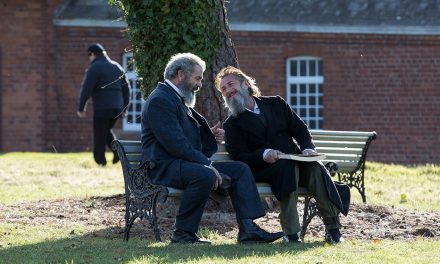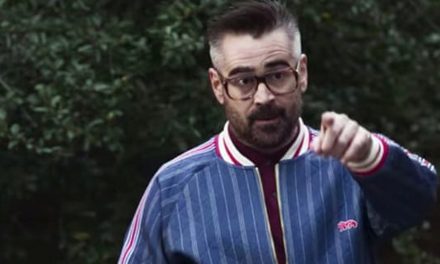Who would have thought you could make a movie about that cranky regular at the pub? How about then turning it into a heartfelt, bittersweet and thought-provoking film that explores themes of race, love and – the most salient of all – euthanasia.
In Last Cab to Darwin, Michael Caton plays Rex, the most Australian man you’ve see in a film since he brought Darryl Kerrigan to the screen in The Castle. Rex is a cab driver in Broken Hil – a town where everyone knows everyone and secrets are sacrosanct. Rex, however, has stomach cancer and, with only three months to live, makes a brash decision to commit assisted suicide.
And the way to do it? Travel 3000 kilometres to Darwin.
The road trip is in order to meet Dr. Farmer (Jacki Weaver) whose machine of death is the hot topic around the country as she fights to have it legalised. Rex treks along the arid and remote highways of Australia, so much so – that half of it doesn’t even have roads for him to drive! If you’re anything like me, you will be spellbound by this foreign landscape within our own borders – one that is reminiscent of an African desert (but with a few more pubs along the way).
On his journey, Rex picks up a few stragglers as he, sleeps from pub hotel to pub hotel. Tilly, the scene-stealer (played by Mark Coles Smith), is the lovable drifter who is wasting his days on the drink. He tags along Rex – initially to rob him – but soon reveals a desire to pursue his dreams of playing in the AFL.
His relationship with Rex is quite father/son. It’s charming to watch as Rex breaks Tilly’s rough exterior to reveal his deep feelings of failure. There’s also (Emma Hamilton) Julie, a Brit working in Australia, whose nursing abilities lead her to take stock and hit the road to keep Rex comfortable throughout the trip.
Jeremy Sims’ film is a beautiful example of simple storytelling with a strong focus on character development. It creates a vibrant and believable atmosphere that really helps us – the audience – to trust the characters, and truly care where they end up.
This is especially the case of Rex’s relationship with his Indigenous neighbour, Polly. We can see they are in love but each too stubborn to admit it. As the film develops we watch Polly as she tries to justify and understand why Rex would leave her to kill himself. Julie’s scenes demonstrate that she gives Rex a zest for life and a reason to live. It’s the formula that means tissues might be needed needed at the end as you choke back the tears.
Thank you, Australia cinema, for the last two years of consistently great movies. Last Cab to Darwin is further proof that we still have a lot of great stories to tell, and harks to excitement and promise for our industry. 7/10.





